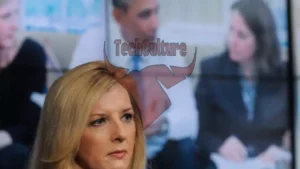Elon Musk Casts Doubt on Trump’s $500 Billion AI Project
Tech mogul Elon Musk has publicly challenged the financial viability of former President Donald Trump’s ambitious $500 billion AI infrastructure project, Stargate. The initiative, which involves major players like OpenAI, SoftBank, Oracle, and UAE-backed MGX, has come under scrutiny from the Tesla and SpaceX CEO.
In a series of posts on his social media platform X, Musk expressed skepticism about the project’s funding, claiming that SoftBank has secured less than $10 billion for Stargate. This assertion casts doubt on the project’s ability to meet its lofty financial goals.
Musk’s comments have raised eyebrows in both tech and political circles, potentially signaling a rift between the entrepreneur and the former president. Despite their previous alliance, experts suggest that the strong personalities of both figures could lead to a significant fallout.
The criticism from Musk may also stem from his complicated history with OpenAI, a key player in the Stargate initiative. Musk co-founded OpenAI but departed in 2019 due to disagreements. His recent lawsuit against the company over AI model transparency further complicates the relationship. Notably, Musk’s own AI venture, xAI, is not involved in the Stargate project.
This public challenge to Trump’s project marks a shift in Musk’s approach to the former president. While they have had previous tensions, including Musk’s ignored suggestion for treasury secretary and a reported altercation at Mar-a-Lago involving Trump’s lawyer, this direct criticism of a major Trump initiative is unprecedented.
As the situation unfolds, questions arise about the future of the Stargate project and its ability to secure the necessary funding. Musk’s comments have not only cast doubt on the project’s viability but also highlighted potential fractures in high-profile alliances within the tech and political spheres.
The tech community and political observers alike will be closely watching how this situation develops, as it could have far-reaching implications for the future of AI infrastructure development and the dynamics between tech leaders and political figures.




